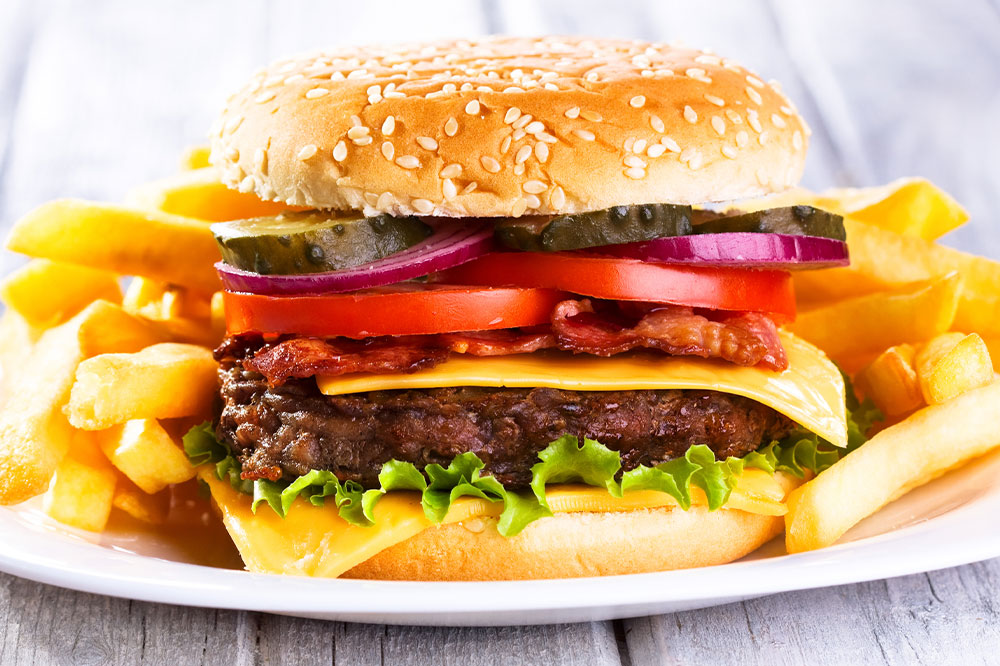High-risk cancer foods to avoid
A healthy diet is one of the essentials of living an illness-free lifestyle, including lowering your risk of cancer. Understanding nutrition is essential if you are either managing this illness or trying to avoid it. Speak to a doctor in detail to know why these following foods should be avoided to reduce the risk of cancer.

Processed meats
These are primarily red meats like hot dogs, salami, sausage, corned beef, beef jerky, and ham. These meats are preserved using smoke, curing, salting, and canning and these processes can create carcinogens in the food. Several reviews suggest that over-consumption of processed meat is related to breast, stomach, and colorectal cancer.
Fried foods
According to research, a compound called acrylamide is formed when starchy ingredients are cooked in high temperatures, and this compound is responsible for damaging DNA and causing the death of cells. As over-consumption of fried foods can lead to obesity and risk of diabetes, it also increases oxidative stress in the body. These unhealthy reactions in the body may increase the risk of cancer.
Alcohol
The liver in the body breaks down alcohol into a compound called acetaldehyde. This compound is carcinogenic, and it promotes oxidative stress and damage to the body’s DNA. When such a reaction occurs in the body, it weakens the immune system, making it difficult to kill any cancerous cells in the body. Studies suggest that women who drink too much alcohol are at high risk of getting estrogen receptor-positive breast cancer.
Immunotherapy treatment
This is a type of therapy that works with the immune system to fight cancer cells. A healthy immune system can fight off the infections and diseases in the body, which are major health risks. As part of biological therapy, this kind of treatment takes substances from already living things to treat cancer in the patient. One such method is T-cell transfer therapy. This method uses healthy T-cells to fight off the cancer cells naturally. The cells from the tumor are taken out to the lab, modified to be stronger, and then transferred back into the body to attack the cancer cells. A healthy diet is one of the essentials of living an illness-free lifestyle, including lowering your risk of cancer. Understanding nutrition is essential if you are either managing this illness or trying to avoid it. Speak to a doctor in detail to know why these following foods should be avoided to reduce cancer risk. If you are managing your symptoms, you can also read about immunotherapy that may be helpful for your recovery.











